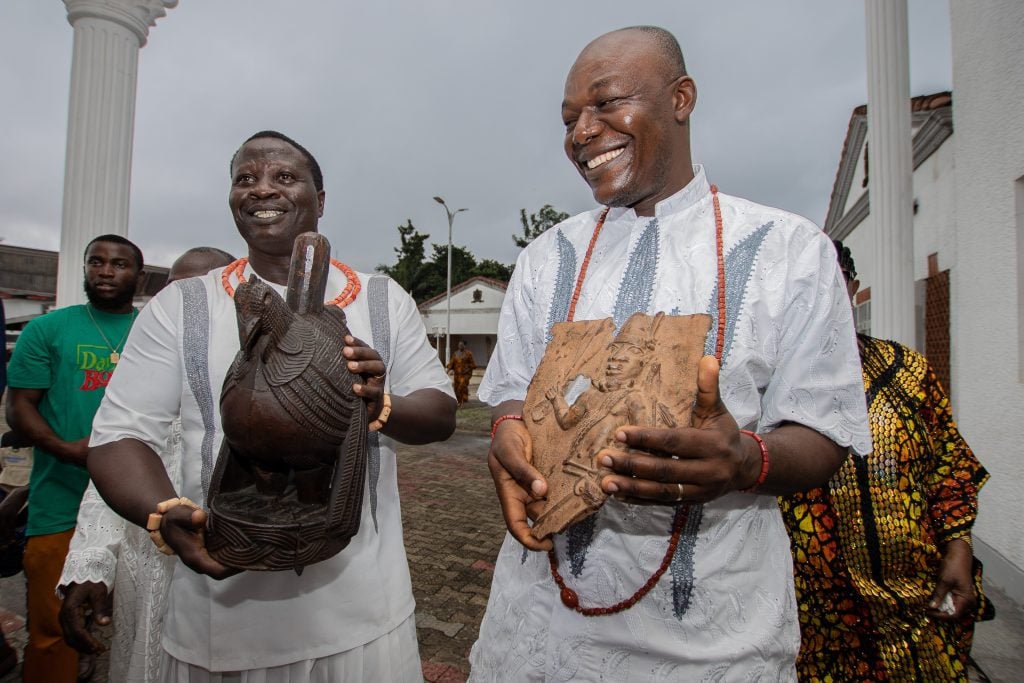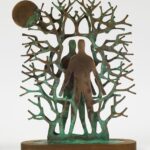The Stanley Museum of Art at the University of Iowa has made a historic repatriation of artifacts known collectively as Benin bronzes to Nigeria.
Museum officials announced that the institution has handed over a brass plaque and wooden altarpiece from its collection to Ewuare II, the Oba of Benin, in a July 15 ceremony at the palace of the former Kingdom of Benin in what is now the Edo state of Nigeria. The two objects were among thousands of objects looted from the palace by the British during an 1897 siege.
Ewuare II ascended to the role in 2016 to replace his grandfather and is a direct descent of Oba Ovonramwen Nogbaisi, who reigned from 1888 until the punitive British expedition, which contributed to the establishment of modern Nigeria. After the sacking of Benin City, the kingdom was incorporated into the British Protectorate of Southern Nigeria.
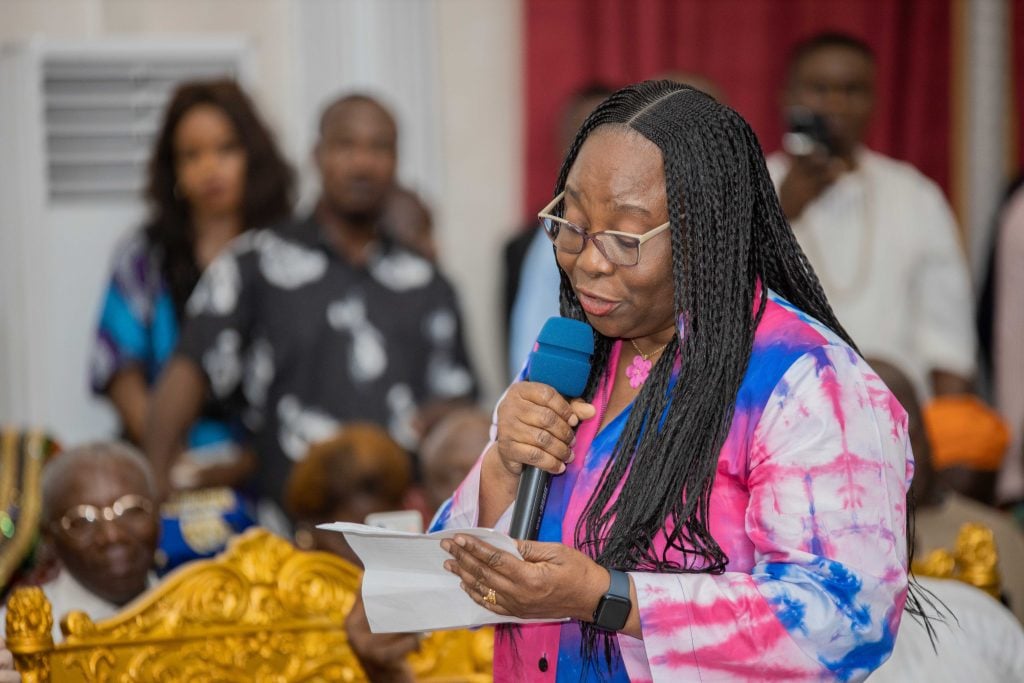
Peju Layiwola addresses the Oba and court officials during the restitution ceremony at the Royal Palace. Photo by Omoregie Osakpolor, courtesy Stanley Museum of Art.
Though the oba no longer rules Benin, the title retains significant cultural importance, and the leader is seen as a unifying symbol and custodian of history for the Edo people with some role in local governance and as a spiritual leader. Last year, the Nigerian government officially recognized the oba as the rightful owner of the looted artifacts.
“The violence and loss associated with these objects can never be forgotten,” said Cory Gundlach, curator of African art at the museum. “The Stanley Museum of Art is committed to acknowledging this tragic chapter in history and using it as a catalyst for positive change.”
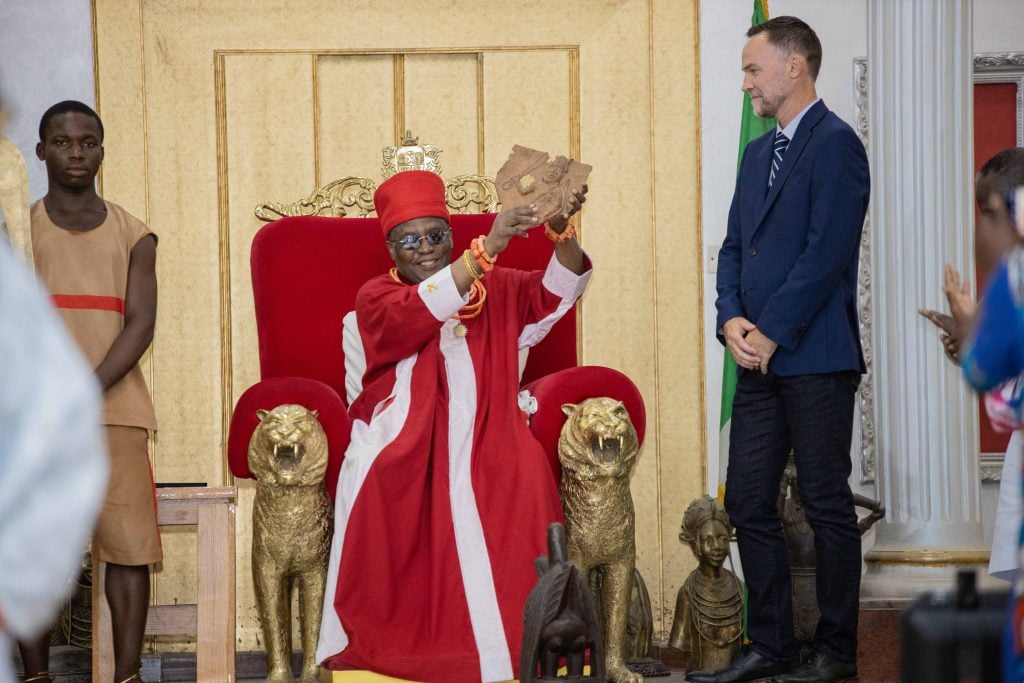
His Majesty, Oba Ewuare II, holds up the brass plaque presented to him by Dr. Cory Gundlach (right) during the restitution ceremony at the Royal Palace. Photo by Omoregie Osakpolor, courtesy Stanley Museum of Art.
The return of Benin bronzes has provided a gauge for how museums handle the ongoing calls for the repatriation of artifacts stolen from Africa after the Association of Art Museum Directors in 2019 called for creating guidelines to return looted African art.
The museum said in its statement that, rather than following those guidelines, it “charted a different course” on the belief that the Benin bronzes belong to the current Benin royal family, rather than the government of Nigeria.
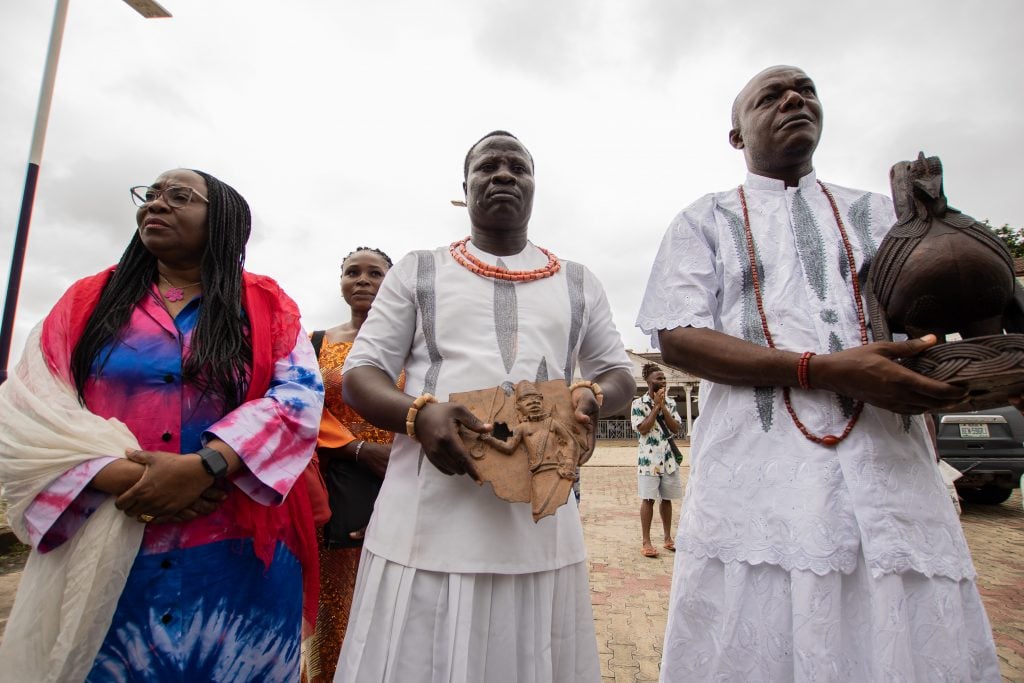
Peju Layiwola, accompanied by court officials, taking the returned objects into the inner chambers of the palace for the Oba’s wives and other family members to see. Photo by Omoregie Osakpolor, courtesy Stanley Museum of Art.
“While other museums pursued repatriation to the Nigerian government, the Stanley persevered in seeking restitution to the oba,” the Stanley Museum said.
As reported by the Art Newspaper, it appears to be the first time an American museum returned works to the former royal family of the Benin empire. The Smithsonian Institution’s Board of Regents voted in 2022 to deaccession a group of 29 Benin bronzes in its collections to Nigeria’s National Commission for Museums and Monuments.
In December 2022, German museums restituted 21 objects in its collections in a repatriation ceremony in Nigeria’s capital, Abuja. Most of the remaining bronzes are in the collection of the British Museum. An online database started in 2020 called Digital Benin has catalogued around 5,246 historic Benin objects held in 131 institutions across 20 countries.
Follow Artnet News on Facebook:
References: this article is based on content originally published by Adam Schrader on Artnet. You can read the full article here.
